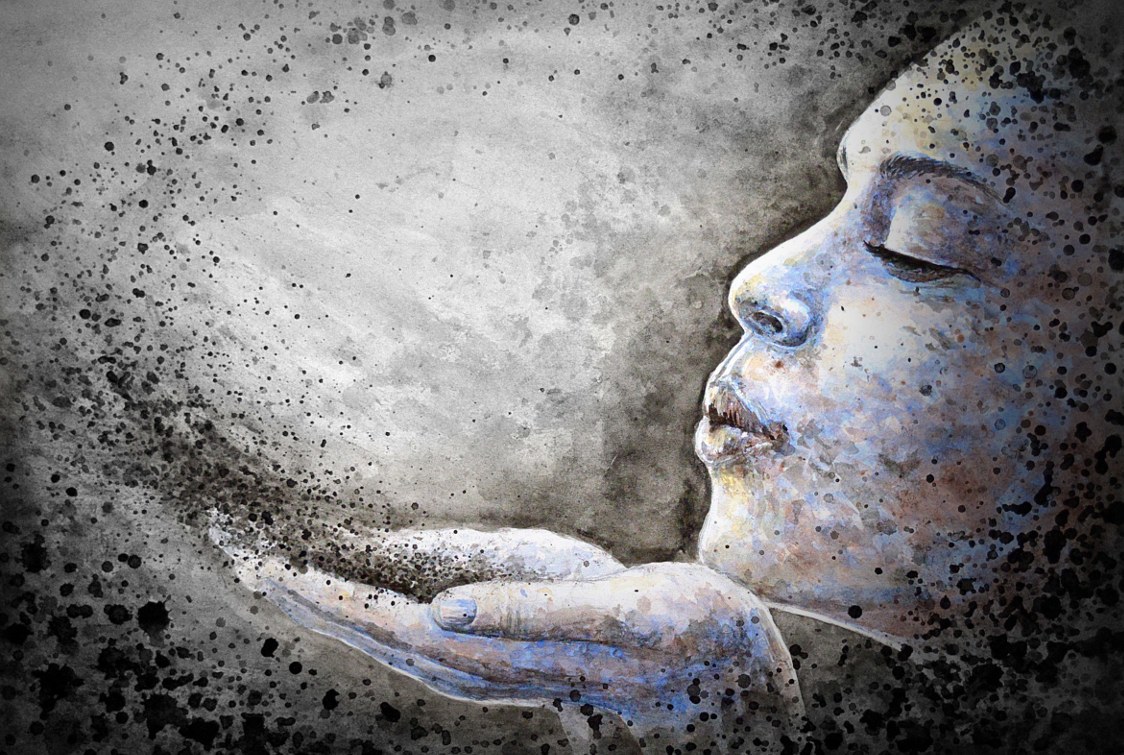Merchant of Desire

He is called the Merchant of Desire.
He operates in a dingy stucco strip mall and has been in business for as long as anyone can remember. Only the foolish or the desperate seek his aid, and then only as a last resort. They’re people without ambition, people who hate their jobs, their spouses, their families, people who’ve gone mad in the wasteland of routine.
They appear in the dusty doorway without an appointment. An electronic bell chimes when they gather the courage to enter, and they blink with surprise as if the ordinary sound has no business existing in such a place.
They inch forward into the dark environment, anxiety knotting their stomachs as they pass through a mostly empty building that appears long abandoned.
The merchant waits in the back. He wants the unsettling nature of the shop to work on their minds. Only the most desperate stay, and it’s only the most desperate that interest him.
When enough time has passed, he steps out from behind a dark curtain, announcing himself in a sudden flourish that makes his patrons jump. He apologizes, offers soothing gestures and comforting words.
He is the consummate salesman.
Anxiety doesn’t escape them completely, but after a joke or two, perhaps a word about the weather, they start to relax. They allow the merchant to charm them with his hospitality, knowing full well he’s a dangerous man who can’t be trusted. He listens to all they have to say, and he regales them with tales of his own life, of his youth in rags or his youth in riches, of growing up an only child or growing up among five siblings.
As they listen they let their guard down, so that eventually they disclose something compromising. A sibling’s habit they find annoying. A regret that keeps them up at night. Unsettling dreams. Tiny cracks in the psyche reveal themselves, and the merchant prods with great care until the window dressing that covers their naked souls has come undone without their having realized it.
They open up to him then, forgetting all about his reputation. They reveal their life has been an affectation, a pretense of passion they construct daily to hide the apathy that’s consumed their hearts, reducing them to gnarled, withered stumps. They ask how such a thing could be so, if there’s something wrong with them, if something’s not right in their heads.
This is the opportunity the merchant has been waiting for.
By this time, his soon-to-be customers have made up their minds. For mere dollars, he offers them ambition, dreams, desire. He offers the opportunity to feel once more, to escape the icy prison of indifference that’s tormented their malnourished souls for so many years.
They’re skeptical, of course, at least on the surface. They invariably call him mad, absurd, even disingenuous. But in the most primal regions of their hearts, they know he can give them what they think they want.
He always has his way with them in the end.
He leads them into the back, a dark, windowless room. He sits them down in a corner on a small wooden chair. He tells them to close their eyes, then hovers over them unseen, where he reaches into their minds.
He navigates the labyrinthine corridors of their psyches with ease, wending his way through broken dreams and broken hearts. He knits and mends, constructs new dreams from the detritus of the old.
His customers wake refreshed and invigorated. They rediscover purpose. They find their mental compass has been reoriented. The Merchant bows and wishes them the best of luck.
But there’s still the matter of the price.
To start, there’s a modest financial exchange. This allows the merchant to pay his rent. But his rate is low and his customers are always surprised.
There’s also a hidden fee, one his patrons never see coming. It usually costs them their lives.
Most don’t last for more than a few years. Their ambitions outgrow their accomplishments and they find they can never be satisfied. They don’t blame the Merchant. Why would they, when the fault lies solely within themselves? They believe their goals are reasonable and they can’t understand why they’re unable to achieve them. If only they’d worked harder. If only they’d put in more hours. Saved more money.
They push themselves until they’ve depleted what little energy they have left, and the Merchant watches from a distance, feeding on their ballooning ambition like a vampire.
Some commit suicide. Others suffer heart attacks and strokes. A few survive to old age, but only as desiccated husks, devoid of anything beyond a heart beat and a pulse.
The merchant always regrets their passing. If only he could feed on them forever. But there are always others to sustain him.
It’s never a hard sell.
Enter your email address and click "Submit" to subscribe and receive The Sign.
